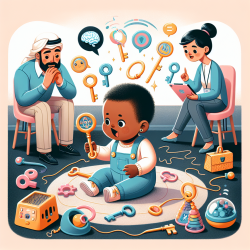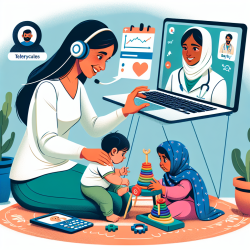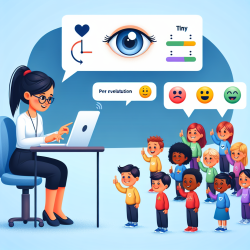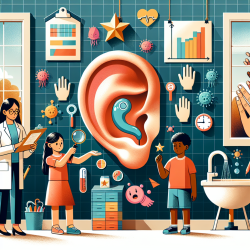In the wake of COVID-19, digital transformation has become a necessity rather than an option. This is especially true in fields like speech-language pathology, where remote services have surged in demand. TinyEYE, a leading provider of online therapy services to schools, stands at the forefront of this transformation. To help practitioners improve their skills and encourage further research, we delve into the findings from the research article "ABET Accreditation During and After COVID19 - Navigating the Digital Age."
Why Digital Accreditation Matters
Digital accreditation frameworks, as discussed in the article, have shown remarkable promise in enhancing Continuous Quality Improvement (CQI) processes. By automating data collection, evaluation, and reporting, these frameworks offer a robust mechanism to ensure high-quality educational outcomes. This is crucial for TinyEYE, where the effectiveness of online therapy can be significantly amplified through data-driven decisions.
Implementing Digital Accreditation Frameworks
To harness the benefits of digital accreditation, TinyEYE can implement several key strategies:
- Automated Data Collection: Use digital tools to automate the collection of therapy session data. This reduces manual errors and ensures comprehensive data capture.
- Outcome-Based Evaluation: Shift the focus from traditional metrics to outcome-based evaluations. This involves setting clear, measurable goals for each therapy session and tracking progress against these goals.
- Continuous Feedback Loop: Establish a continuous feedback loop where data from therapy sessions are regularly reviewed and used to inform improvements in therapy techniques and strategies.
Encouraging Further Research
The digital age presents a unique opportunity for speech-language pathologists to contribute to the growing body of research. By engaging in studies that explore the efficacy of online therapy, practitioners can help shape the future of the field. Key areas for further research include:
- Effectiveness of Online Therapy: Conduct longitudinal studies to compare the outcomes of online therapy with traditional in-person sessions.
- Technology Integration: Explore how emerging technologies like AI and machine learning can be integrated into online therapy platforms to enhance outcomes.
- User Experience: Investigate the user experience for both therapists and clients to identify areas for improvement in digital platforms.
Conclusion
The insights from the research on digital accreditation frameworks offer a roadmap for enhancing online therapy services. By implementing these strategies, TinyEYE can ensure high-quality outcomes for children and contribute to the broader field of speech-language pathology. To read the original research paper, please follow this link:
ABET Accreditation During and After COVID19 - Navigating the Digital Age 









